On the afternoon of January 6, Tsinghua University held the 2021-2022 academic year’s steering committee meeting and exchange activity of its global environmental program (GEP) in the conference center of Xijiao Hotel. The meeting is held online at the same time. Tu Ruihe, Director of GEP’s Steering Committee and the UNEP Representative in China, and Xu Huaqing, Director of the National Center for Climate Change Strategy and International Cooperation, were invited to attend offline; Lv Xuedu, Chief Scientist on Climate Change of the Asian Development Bank, and Fang Li, Chief Representative of the World Resources Institute Beijing Representative Office, attended the meeting online. The meeting was presided over by Wang Shuxiao, the Responsibility Professor for GEP. Liu Shuming, Chairman of School Council, Li Jinhui, the Consulting Professor for GEP, and Dong Xin, the GEP director also attended the meeting.
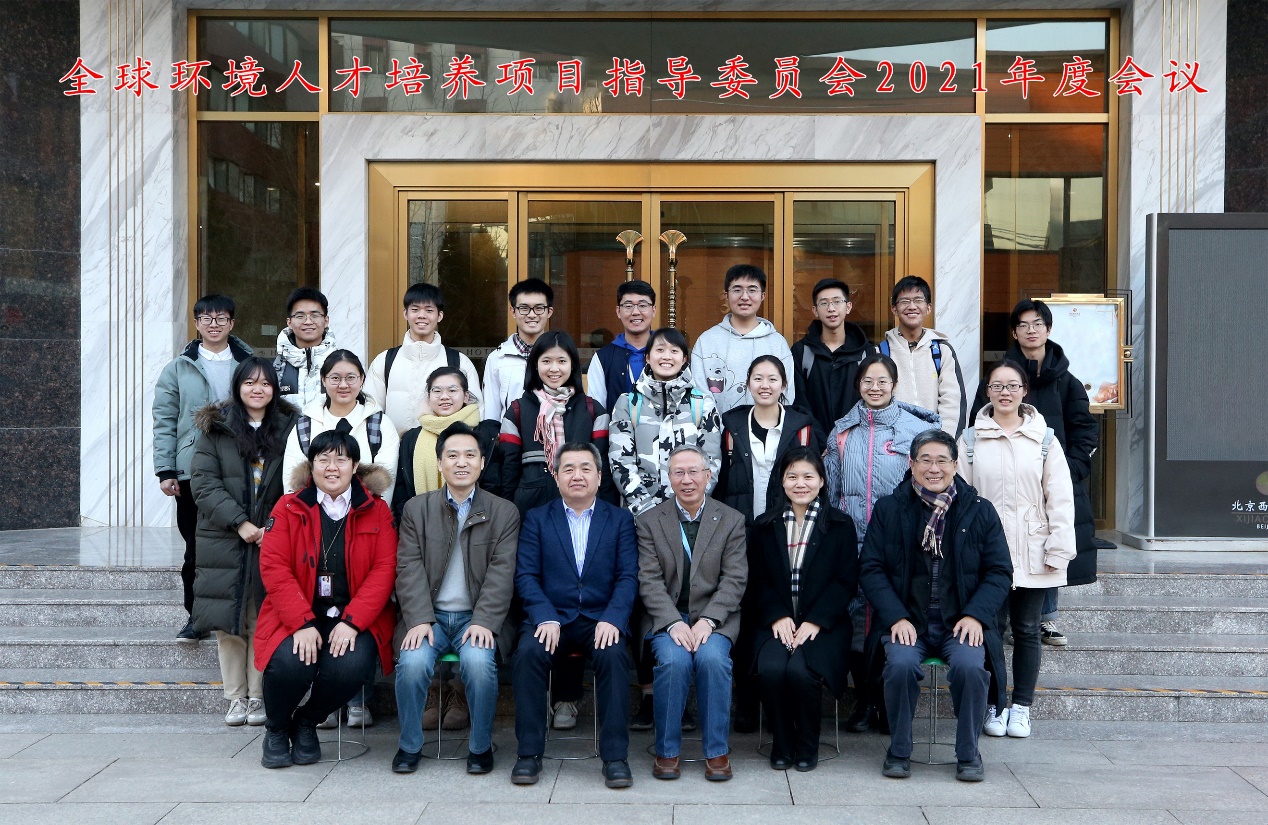
Group of participants
Dong Xin introduced the background and features of GEP, and its main work in 2021, hoping that the steering committee would continue to put forward specific suggestions for “the training of global environment talent under the background of epidemic and with the strategic goals of carbon peak and neutrality”.
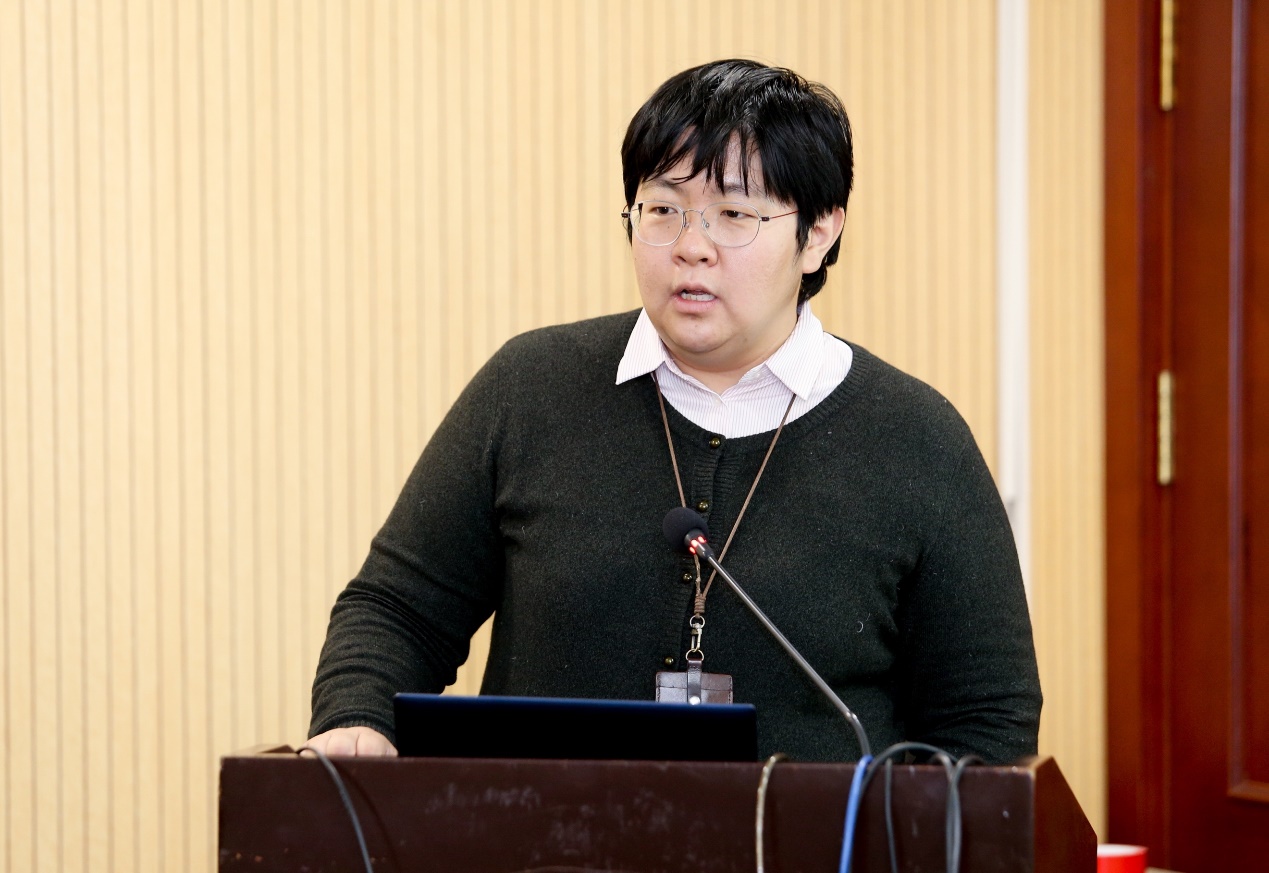
Dong Xin is reporting GEP’s progress
Tu Ruihe shared his experience of participating in the work of coping with climate change. He said that GEP, where teachers with rich practical experience provide guidance to students in the program, not only provides a “sense of learning something”, but also plays the role of an “information platform”. He suggested that GEP should take a long-term view in training talent, and focus on the cultivation of the trainees’ ability to speak, express and think; Experts could also be invited to share specific cases and give practical guidance to them.
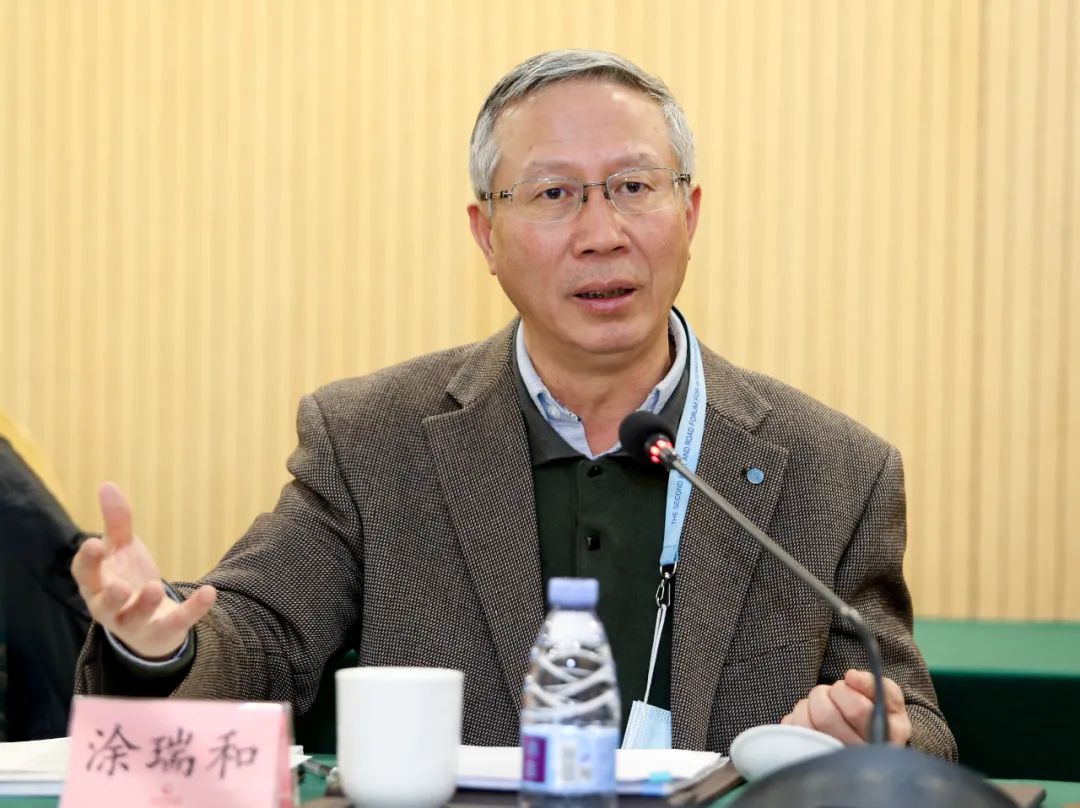
Tu Ruihe is speaking
Xu Huaqing suggested to make GEP a continuous academic project that involves undergraduate, graduate and doctoral studies, in which students can learn China’s national conditions at the undergraduate stage, broaden their research fields while studying for their master’s degrees, and be trained to be a good leader when they are doctoral students, so that students can better combine theory with practice and gain more professionalism.
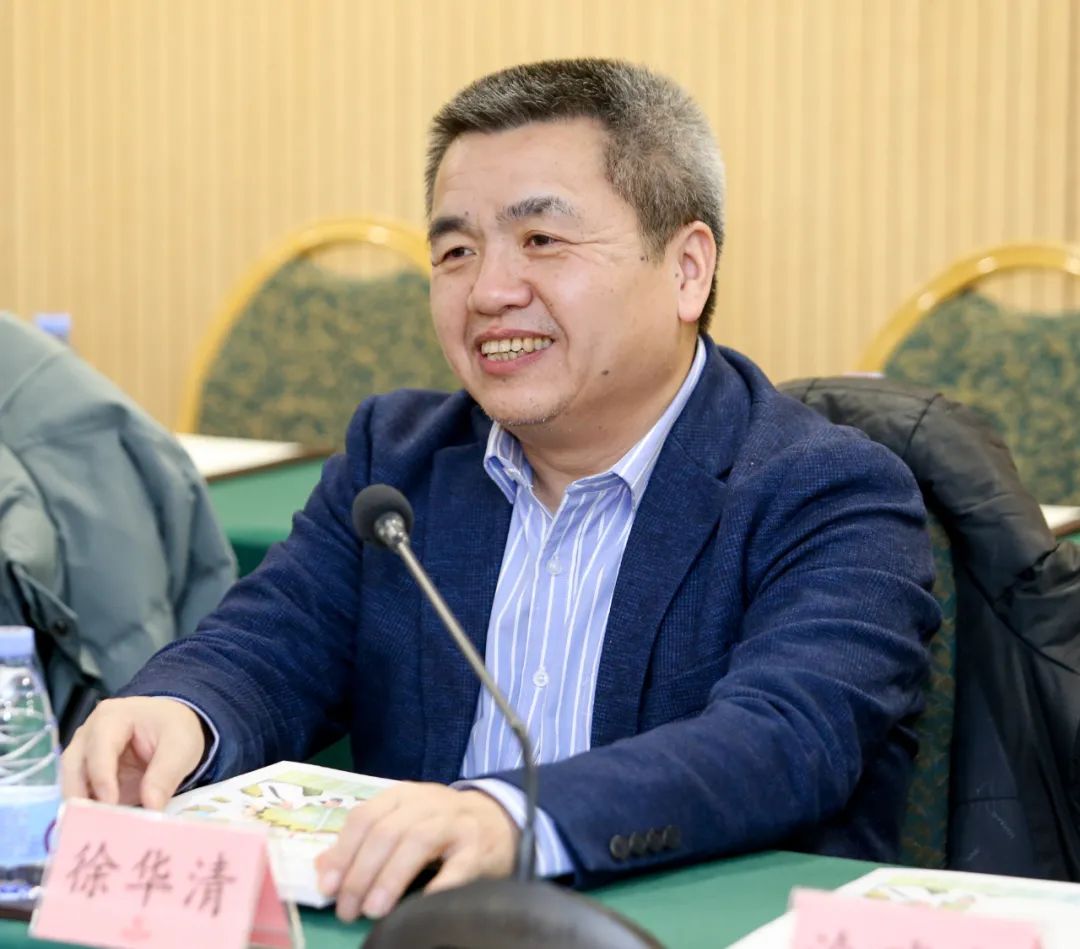
Xu Huaqing is speaking
Fang Li thinks that GEP should cultivate students’ thinking and research ability as well as interdisciplinary skills because global environmental talent needs to have the ability to provide reasonable policy suggestions based on their natural science knowledge, the ability to process information, and strong communication skills. She suggested providing more opportunities to practice for students and establishing a feedback mechanism for graduates.
Lu Xuedu pointed out that the GEP’s “labels” can be the students’ foreign language proficiency and thorough knowledge and understanding of global environmental issues. GEP should also focus on these two aspects in curriculum design, and lengthen the time on tracking and assessing the results of talent training.
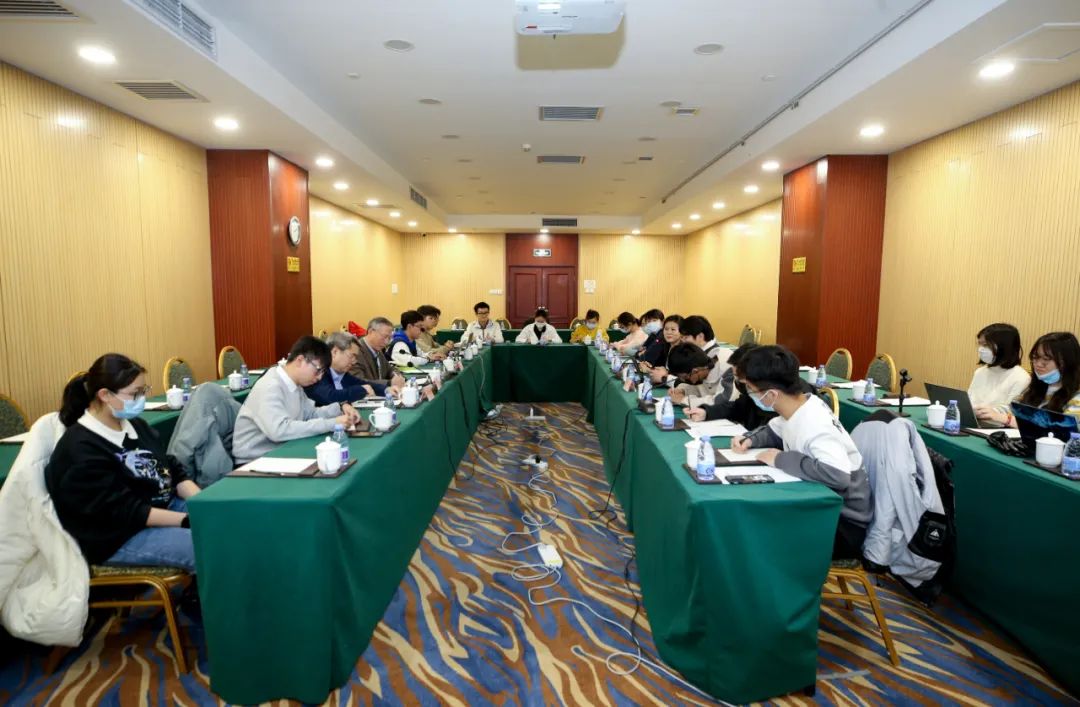
“Face-to-face” activity with steering committee
In the subsequent “face-to-face with steering committee” activity, the committee members had a cordial exchange with more than 20 students in GEP. Dong Xin hosted the activity.
Starting from the dynamic evolution of the international environmental governance and China’s environmental policies, the committee members pointed out that GEP meets the needs of the times. They hoped that the students would pay close attention to international trends, and be qualified people in global governance to meet the demand of the country. In this regard, the students should strive to be familiar with national policies and proficient in international negotiations while having strategic thinking and global vision so that they can participate in global environmental governance and share China’s efforts and achievements in environmental protection to the world.
Based on their own work experience, observation and thinking, the committee members also answered questions on issues that the students were concerned about such as climate change and biodiversity protection. They looked back on the course of China’s negotiation on relevant issues, analyzed the evolution of China’s role and position in the process. Then they introduced the progress of China’s climate and energy policies such as those on carbon market and dual control system of total energy consumption and energy intensity, and pointed out that non-governmental organizations, research institutions and other non-state actors play an important role in global environmental governance.
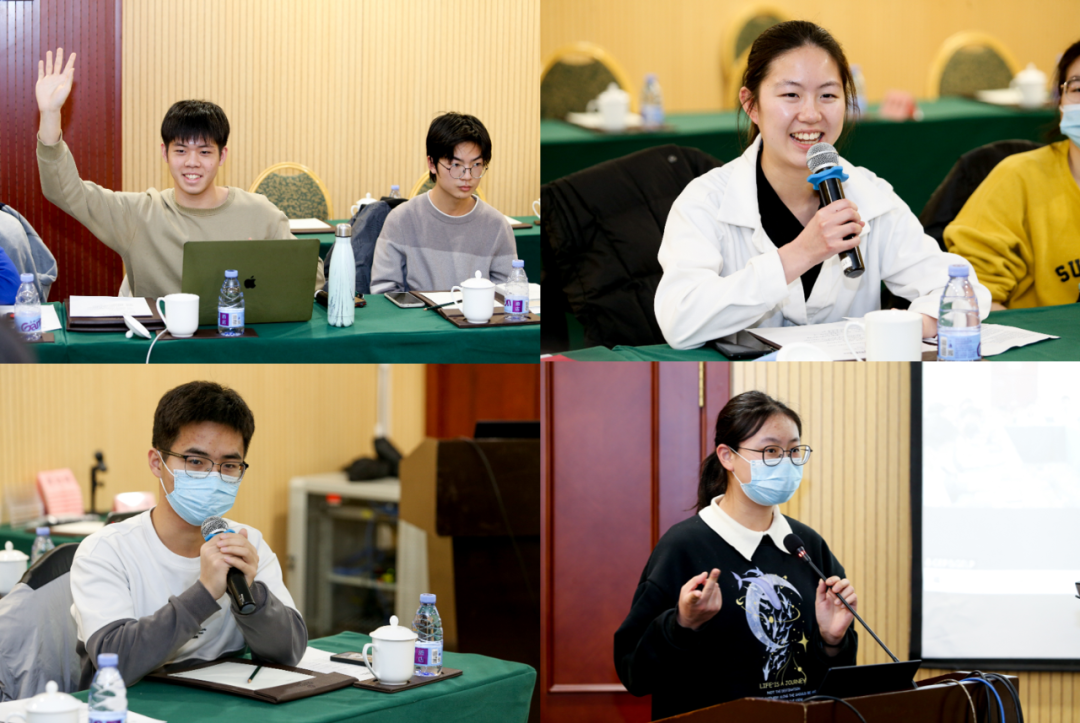
Students asking questions
At the end of the meeting, Liu Shuming made a conclusion. He pointed out that talent cultivation needs a long period, in which ability cultivation weighs the most. Our training should guide students to think, improve their ability to apply what they have learned, and their initiative to solve problems. He thanked the members of steering committee for their guidance and support to GEP, and looked forward to their more in-depth participation in lectures and other exchange activities to help student development.



